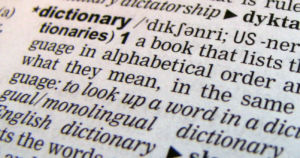
Review: The Elementals by Saundra Mitchell
Julian Birch has a “withered” leg from a childhood bout of polio, and Mitchell’s depiction of him is one of the most believable, relatable portrayals of disability I’ve come across.

Julian Birch has a “withered” leg from a childhood bout of polio, and Mitchell’s depiction of him is one of the most believable, relatable portrayals of disability I’ve come across.

For disabled characters, being cured is a common trope. What’s more, in most of these narratives, the characters are cured because they’re better than they were at the start of the book: kinder, gentler, braver. And finally, finally, they’re normal and whole.

I can’t tell you how many times people have been dismissive or incredulous about my mental illness, simply because I don’t fulfill their preconceived notions about bipolar individuals.

To help authors make informed decisions about what language to use, we talk about disability terminology–from outdated words and cringe-worthy phrases to straight-up ableist slurs, and everything in between.
Thanks for keeping up with us, and we hope you enjoy the series. One more day!

Magic and technology often minimize disability in SF/F. How can authors meaningfully engage with disability and the ways that speculative elements can affect disabled characters?

Speculative fiction is work that focuses on difference, work that immerses us in it. But the choices we make when building a fictional world can reflect on the world that we live in now. So how do we worldbuild with disability in mind?

Severe, chronic vertigo associated with migraines like mine is a “silent” disability, one people can’t see. Many people are compassionate. But others lack sensitivity, assume you’re faking it or just have a headache and will get over it.

Blind characters seem to always go too far in either one direction or the other—either completely ruled by their disability, or completely unfazed. The truth is, I hate both, because neither is honest.

I’ve talked a lot about the ways my disability has affected my body image, my sexuality, my confidence, and my social interactions, and all of those things are important to consider when writing a disabled character. Today, however, I want to focus on the ways my disability affects the logistics of my life.